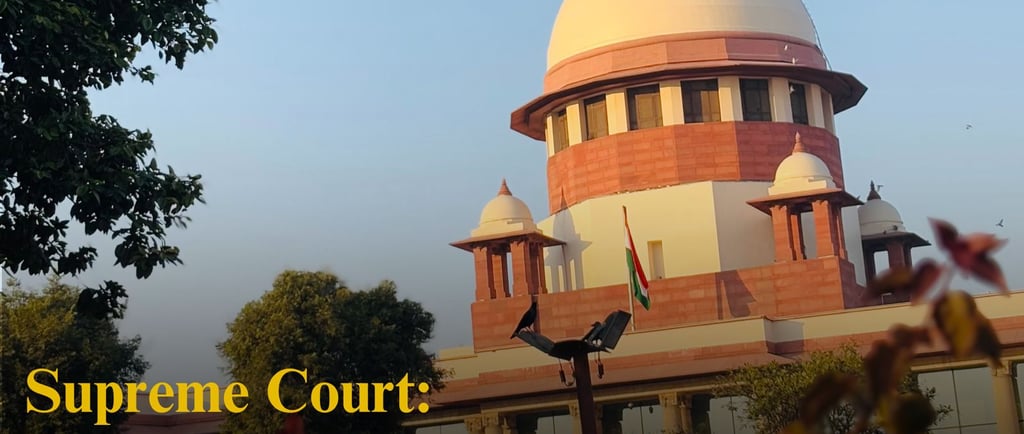Supreme Court: Insurers Cannot Deny Claims for Non-Renewal of State Permit if National Permit is Valid
The Supreme Court has ruled that an insurance company cannot reject a claim solely because a vehicle’s state permit was not renewed if a valid national permit was in place at the time of the incident. The Court clarified that if a vehicle suffers damage within its registered state, the non-payment of authorization fees for a state permit does not invalidate an insurance claim.
2/9/20253 min read


The ruling came in a case where a truck registered in Bihar caught fire within the state. The insurance company had denied the claim, arguing that the state permit was not renewed after its expiration, making the national permit ineffective. The Supreme Court, however, held that the authorization fee for a state permit renewal is only necessary when a vehicle is used outside its registered state. Since the truck caught fire within Bihar, the insurer could not reject the claim based on non-renewal of the state permit while a valid national permit was in place.
A bench comprising Justices B.V. Nagarathna and S.C. Sharma heard the matter, in which the appellant had challenged the denial of his insurance claim. The truck, which was covered under a valid insurance policy, suffered damage due to an electrical short circuit on June 8, 2014. The insurance company refused to process the claim, citing the expiration of the truck’s national permit and the non-payment of the state permit’s authorization fee.
The appellant initially approached the State Consumer Disputes Redressal Commission, Bihar, Patna, which ruled in his favor and directed the insurance company to settle the claim. However, the National Consumer Disputes Redressal Commission (NCDRC) overturned this decision, holding that the insurance claim could not be granted without a valid permit. Dissatisfied with the NCDRC’s ruling, the appellant took the matter to the Supreme Court.
Before the Supreme Court, the appellant argued that his truck had a valid All India Permit (National Permit) from October 14, 2012, to October 13, 2017. However, the state permit for Bihar was only valid from October 13, 2012, to October 13, 2013. This meant that when the truck caught fire on June 8, 2014, the national permit was still in effect. The insurance company countered that although the national permit fee had been paid for five years, the authorization fee for the state permit was not paid beyond October 14, 2013. According to their argument, the absence of a renewed state permit rendered the national permit invalid for insurance claims.
After hearing both sides, the Supreme Court rejected the insurer’s reasoning and held that the insurance company could not refuse the claim based on non-payment of the state permit’s authorization fee. The Court noted that since the vehicle was within its registered state when the fire occurred, the lack of a renewed state permit did not affect the validity of the national permit.
Justice S.C. Sharma, who authored the judgment, emphasized that the permit on record clearly showed that the truck had a valid national permit until October 13, 2017. The Court explained that the authorization fee was required only when the vehicle moved outside its registered state. Since the truck caught fire within Bihar, there was no legal requirement to pay the authorization fee at that time.
The Court criticized the insurance company’s argument as frivolous and stressed that insurers cannot impose unjustified conditions to reject legitimate claims. The judgment stated:
“The permit in question was issued by the competent authority in Bihar, and therefore, there was no requirement of paying authorization fee when the truck was being used within Bihar. As per the terms and conditions of the National Permit, the authorization fee was only necessary when the truck was operating outside Bihar.”
The Court further noted that the NCDRC’s ruling was erroneous and should be overturned. It held that the State Consumer Commission’s decision was correct and that the appellant was entitled to the insurance claim.
“Thus, in the considered opinion of this Court, the appellant was certainly entitled to the insurance claim as held by the State Commission. Therefore, the order passed by the National Commission on August 19, 2020, deserves to be set aside and is accordingly set aside.”
With this ruling, the Supreme Court allowed the appeal and directed the insurance company to process the appellant’s claim.
Case Title
Shri Binod Kumar Singh v. National Insurance Company Ltd.
